Scientists discover protein key to bacteria's survival in extreme environments
The discovery sheds light on how certain bacteria form spores for...
Our internationally-renowned scientists lead on cutting-edge research tackling global challenges and answering fundamental questions about our world and our universe. The opportunity to study as part of this community could be one of the most rewarding rewarding aspects of your postgraduate journey.
Chemistry research at King’s contributes to the fight against antimicrobial resistance, improves chemotherapy treatments, and builds new green technologies for carbon capture, circular economy and recycling single use plastics.
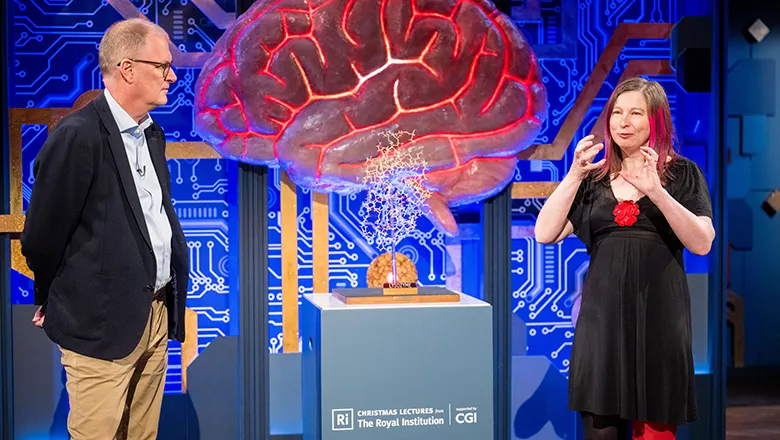
Dr Rivka Isaacson is a Professor of Molecular Biophysics – meaning she is an interdisciplinary scientist, drawing on different disciplinary techniques to probe macromolecular structures and interactions of molecules relevant to health and disease.
Her work explores everything from disease and how protein instability is almost always the root cause, including in neurodegenerative diseases like Alzheimer’s, to bacteria including most recently uncovering the protein that enables bacteria to survive indefinitely in hostile environment to beta testing AlphaFold – the AI tool that predict protein structures whose developers won the 2024 Nobel Prize in Chemistry. She spoke at the Royal Institute Christmas Lectures about this tool and the role of AI in advancing drug development by expanding our knowledge of proteins.
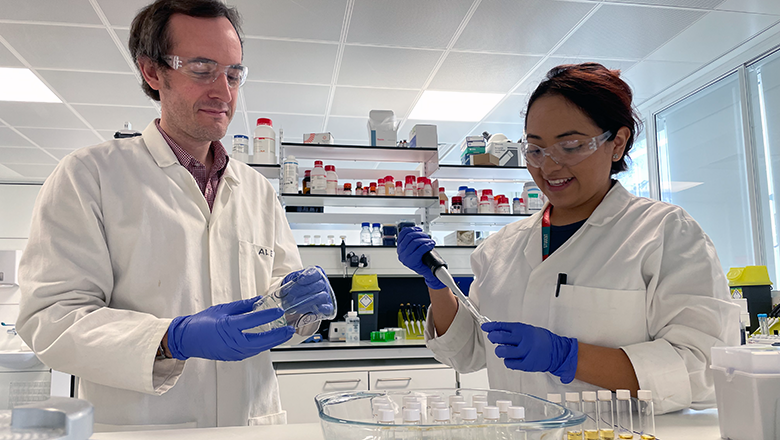
Dr Alex Brogan uses new enzyme-based biotechnologies to develop sustainable processes and products, including developing a new approach to recycling bioplastics using an enzyme commonly found in laundry detergents to ‘depolymerise’ – or break down – landfill-bound bioplastics to their constituent building blocks, so they can be reused in chemicals or in new plastics. The approach is 84 times faster than current methods.
His lab has also developed a new type of biofuel – using enzymes to break down fatty acids in waste cooking oil into alkenes, the building block of fuels like petrol and diesel.
Dr Francisco Martin-Martinez leads a lab using computational chemistry, and machine learning to develop nature-inspired molecules and materials, with applications in precision agriculture, self-healing infrastructure, and energy storage.
Most recently, he worked with a group of scientists to design a new type of self-healing asphalt from biomass, which can mend its own cracks over time, making it a greener and more efficient solution for fixing potholes in roads.
The vision for the Department is to enable discovery, innovation and leadership in engineering education and research.
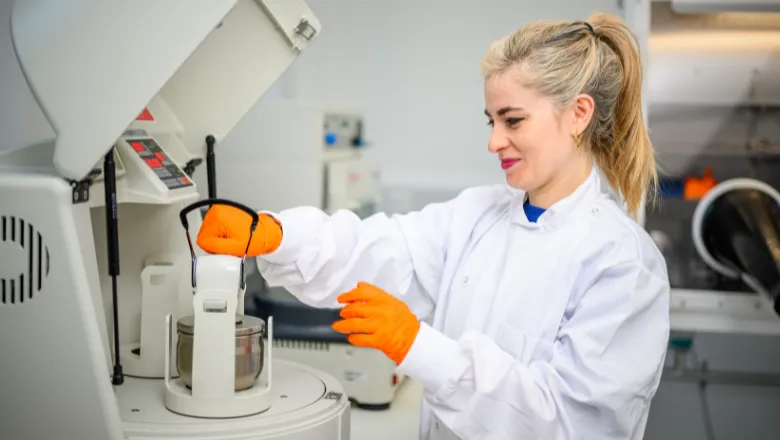
A key research area for engineering is developing Net Zero solutions, including advancing renewable energies, sustainable transport, manufacturing and infrastructure.
Dr Francesco Restuccia is aiming to tackle the huge global problem of wildfires by building a fundamental physics model able predict when and why they spread.
Dr Laura Lander has received a major fellowship to develop next generation batteries that are greener and less vulnerable to supply chain risks
Dr Miao Guo is converting food waste into new proteins, enabling a circular economy in food production and the possibility of dealing with global food shortages.
Dr Wei He has built a new solar-powered system that converts saltwater into fresh drinking water more cheaply that current models, it is also easy to transport and set up so can be used in remote and lower-income countries.
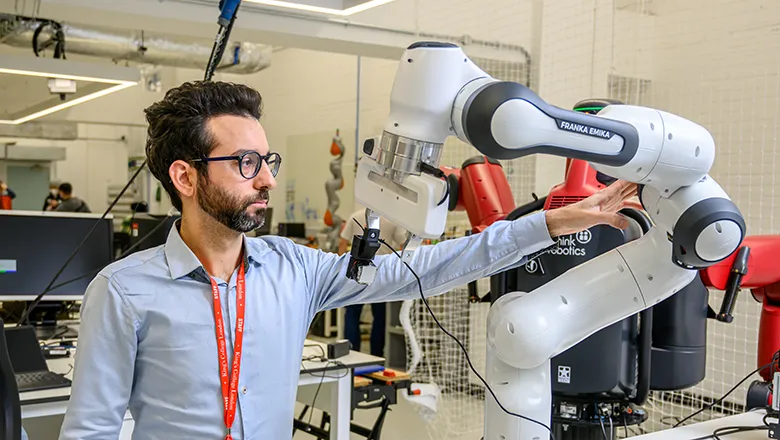
Our Centre for Robotics Research has expertise in major cross-cutting topics with roboticists working across numerous application areas, including developing Human Support Robots with Toyota Motor Europe, advancing robotics for space and autonomous systems – where researchers are building self-configurable, locomotive robots that can traverse different terrains. Our roboticists also work on new materials and soft robotics - engineering soft mechanical metamaterials – shape-changing materials that change the way we design, perceive, and control matter.
Dr Nicola Bailey, works in robotics for assistive technology, biomechanics and prosthetics, she has designed novel prosthetics enabling four-time quadruple amputee, Alex Lewis, to row the length of the UK’s south coast last summer in a world first.
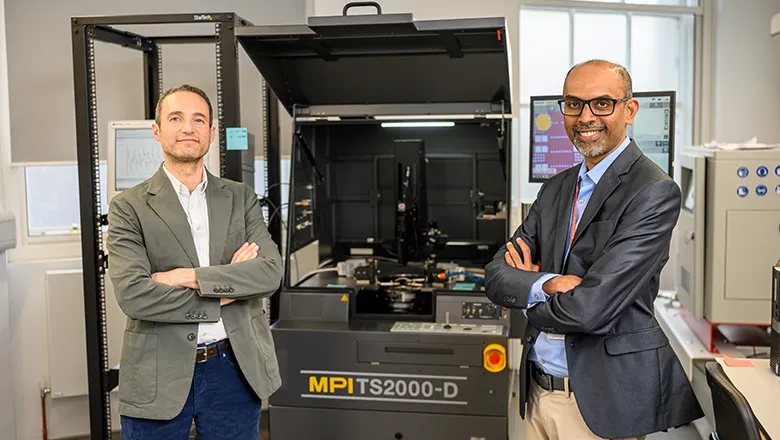
Professors Bipin Rajendran and Osvaldo Simeone are leading the way in advanced computing and AI, advancing neuromorphic or brain-inspired computing a far more energy-efficient and sustainable form of compute than current models, because it copies how neurons in the brain process information in pulses – switching on and off. This can also be used to train AI more sustainably.
King’s academics are leading the way in AI research and innovation – exploring the transformative ways it can benefit society but also developing concrete solutions to creating safer, trusted and more reliable AI models.
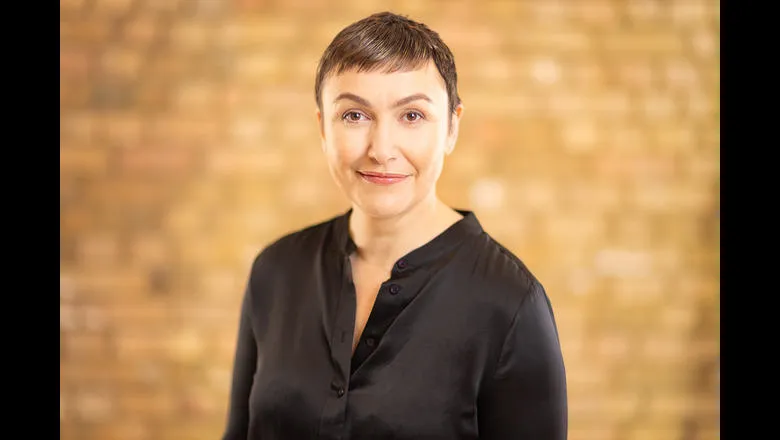
Professor Elena Simperl is a world-leading expert in AI, she is working on various projects including the blueprint for a national data library, a part key of delivering the UK government’s AI Opportunities Action Plan.
She also works on to make AI more accessible, safer and more reliable, including incorporating techniques such as knowledge representation – a field of AI that organises information for computer systems to solve complex questions, and argumentation techniques – which provide a structured approach to representing diverse viewpoints and conflicting information. Her partners include Siemens and the Wikimedia foundation.
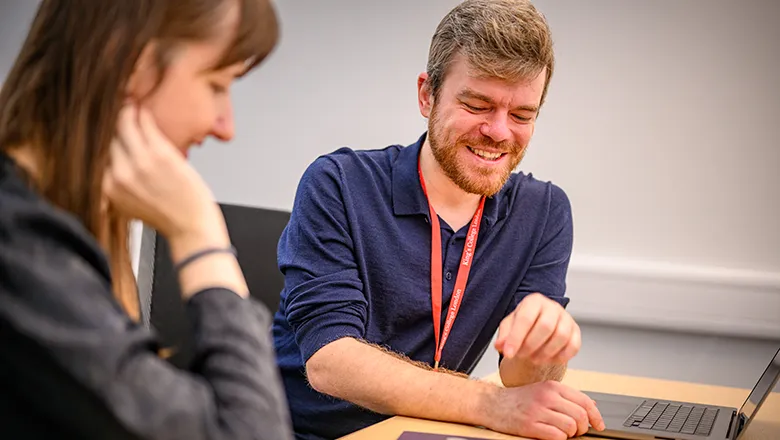
Dr Mike Cook is an expert in AI and the creative industries, most notably video games. His research involves building AI systems that can design novel video games, which requires them to solve a variety of complex problems including level design, software engineering, and human-computer interaction, as well as addressing issues like understanding meaning or emotion.

King’s is well known for its work in cyber and data security. Amongst our experts are Ruba Abu-Salma, who works at the intersection of cybersecurity, privacy, human-computer interaction), and privacy law. She uses computational and social science methods to explore and develop more equitable and trustworthy tools that improve people’s security, privacy, and online safety decision-making processes.
Most recently, she uncovered poor practices in the use of sensitive data by female health apps, developing a resource that can be used by app developers to improve their product, including for use in other categories of health apps such as fitness and mental health apps, which look after sensitive data.
Martin Albrecht is an expert in cryptography, - he works to develop algorithms that can safeguard online information for a future where quantum computers may be able to break current encryption methods. They will also provide security against threats from current computer technology.
Mathematics at King’s covers a broad range of sub-disciplines in applied and pure maths, including analysis, disordered systems, geometry, financial mathematics, statistics, probability and theoretical physics and more. We explore new ways of looking at familiar issues and develop new tools to solve complex problems.
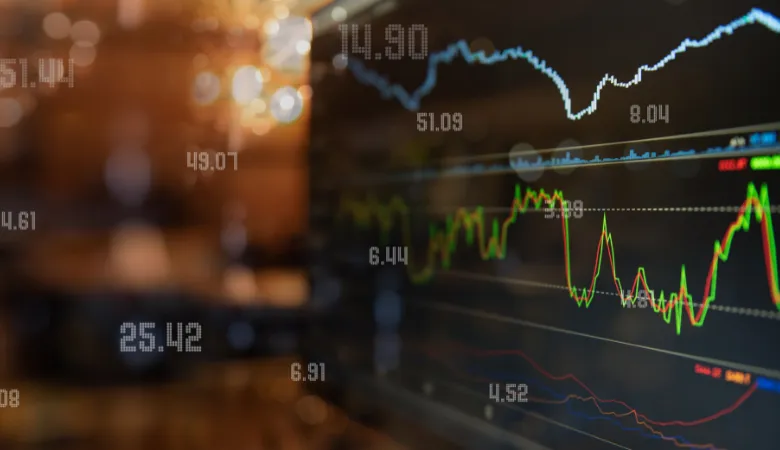
Our thriving Financial Mathematics group has an international reputation for research excellence. Experts research applied topics including pension investments, and pure topics such as solutions to infinite dimensional stochastic differential equations. The diverse backgrounds of the academics - from mathematics, physics, computing and the financial industry results in a lively sharing of ideas.

Dr Pierpaolo Vivo and his lab lead on projects that draw on complexity science – applying maths and concepts in theoretical physics to studying complex systems – looking at the behaviour of the smaller, constituent parts of a system to understand how this impacts a larger complex systems, such as a flock of birds or a traffic jam.
The group takes these concepts and tools and applies them to problems outside of maths, including working with political scientists and scholars in law, to identify areas that warrant investigation in public policy or the legal system, and seeing how this theory can shed new light on old problems.
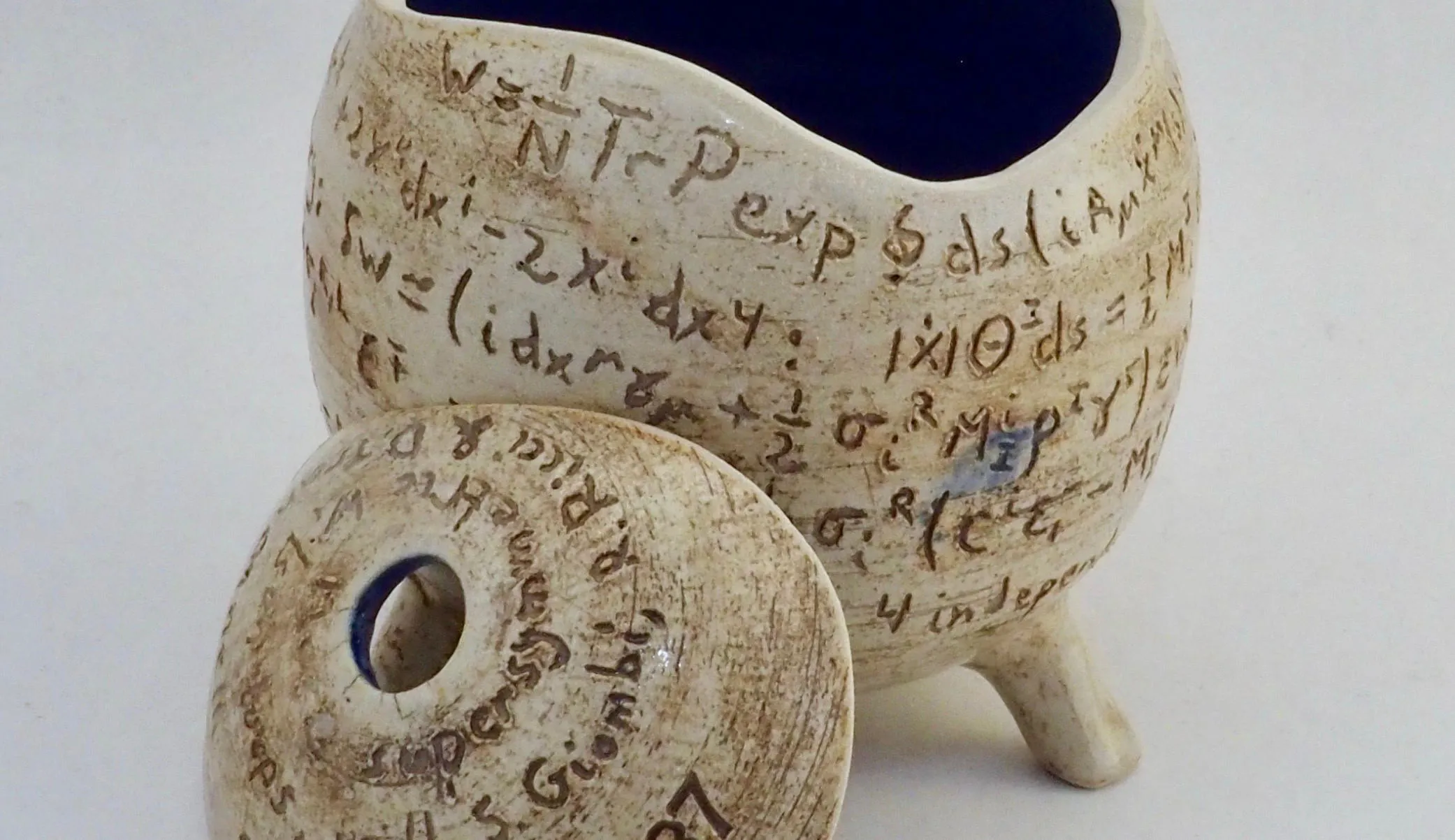
Notably, the Theoretical Physics Group is at the international forefront of research in string and M-theory, black holes, conformal field theory, and other fundamental branches of modern theoretical physics. It regularly organises and hosts conferences and workshops with leading researchers from around the world, and hosts the annual Higgs Lecture with speakers from amongst notable Physics Nobel Laureates.
Physicists at King's are working across traditional subject boundaries and leading cutting-edge research to tackle global challenges and answer fundamental questions about our world and universe.

Our astrophysicists are the forefront of discoveries in space, including Professor Malcolm Fairbairn and Dr David Marsh’s work to uncover the truth behind dark matter and dark energy, Professors Ruth Gregory’s efforts to probe black holes and their quantum nature.
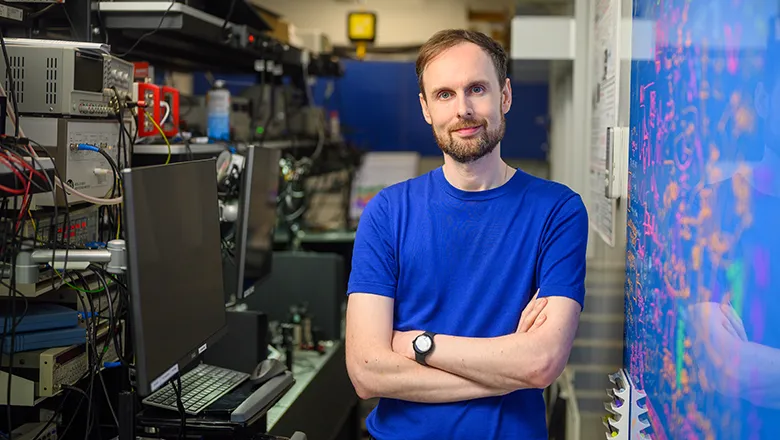
King’s Quantum is an interdisciplinary centre that leverages multidisciplinary expertise across King’s in quantum science, to deliver transformative technology for healthcare, life sciences, security and industry.
The Centre’s Director, Dr James Millen is an expert in quantum sensing and works with industry partners to develop sensors that can detect the tiniest of movements with unparalleled precision, speed and accuracy, advancing technologies across aerospace, medical imaging, environmental monitoring, GPS tracking, and fundamental research in physics, biology and chemistry.
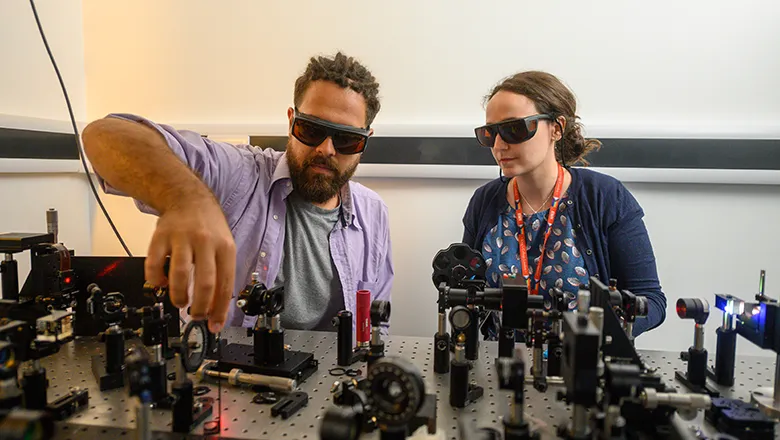
Experts including Professor Anatoly Zayats are at the forefront of developing new metamaterials - synthetic materials designed with innovative properties that can control the propagation of sound, water and light waves enabling the development of technologies such as flat lenses for microscopes and smartphones; and even invisibility cloaks.
Professor Zayats, an expert in plasmonics, is also leading major project exploring how green technologies can be developed by harvesting the properties of light, using technologies drawn from the field of plasmonics at the nanoscale.
The discovery sheds light on how certain bacteria form spores for...
New tool analyses huge amounts of data at record speeds The algorithm can...
Scientists have designed a ‘cosmic radio’ detector which could discover...
The work breaks new ground on audio media accessibility for people with...